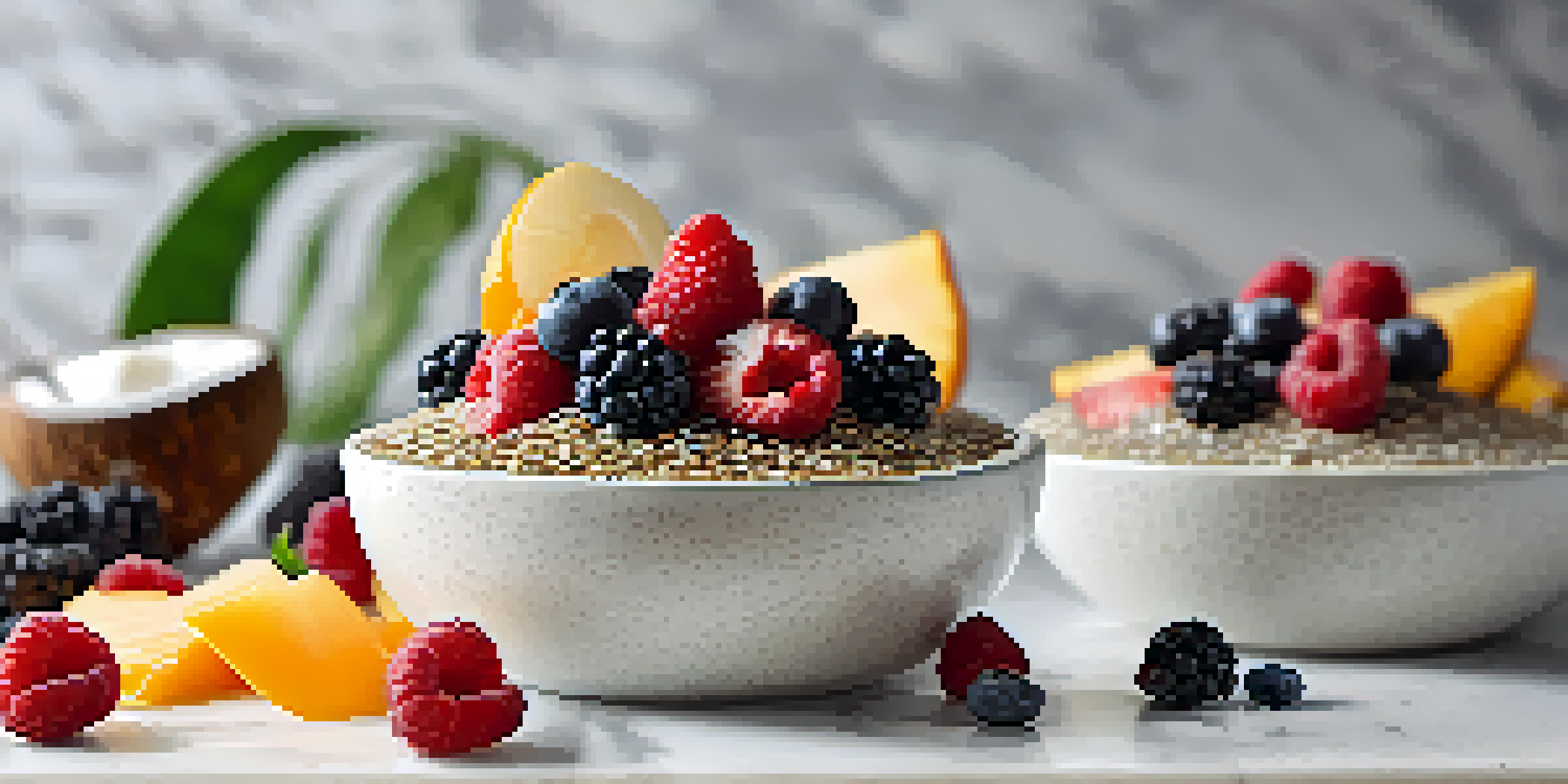Essential Substitutes for Allergens in Vegetarian Dishes

Understanding Common Allergens in Vegetarian Cuisine
Vegetarian dishes can often include common allergens such as nuts, dairy, and gluten, which can be problematic for many people. Understanding these allergens is crucial for both chefs and home cooks looking to create safe and enjoyable meals. By identifying these ingredients, we can find suitable alternatives that keep the flavors intact while accommodating dietary restrictions.
Nut-Free Alternatives for Plant-Based Proteins
Nuts are a popular source of protein in vegetarian dishes, but they can trigger severe allergic reactions for some individuals. Luckily, there are several nut-free options available, such as seeds like pumpkin, sunflower, or chia seeds, which can provide a similar crunch and nutrition. Additionally, legumes like lentils and chickpeas can offer hearty protein without the risk of nut allergies.
Identify Common Allergens
Recognizing allergens like nuts, dairy, and gluten in vegetarian cuisine is essential for creating safe and enjoyable meals.
Dairy Substitutes for Creamy Vegetarian Dishes
Dairy products are often used to add creaminess to vegetarian meals, but for those with lactose intolerance or dairy allergies, this can be a challenge. Plant-based alternatives like almond milk, soy yogurt, or coconut cream can be perfect substitutes, offering a rich texture without the dairy. These options not only cater to dietary needs but can also enhance the flavor profiles of your dishes.
Gluten-Free Grains for Wholesome Vegetarian Meals
Gluten is another common allergen that can be found in many grains, making it essential to seek alternatives for gluten-sensitive individuals. Quinoa, rice, and millet are excellent gluten-free grains that can be used to create filling and nutritious meals. By incorporating these grains, you can ensure that your vegetarian dishes are not only safe but also diverse and satisfying.
Explore Nut and Dairy Substitutes
Using alternatives such as seeds and plant-based milks can maintain flavor and texture while accommodating dietary restrictions.
Egg Replacements for Plant-Based Baking and Cooking
Eggs are often a staple in vegetarian cooking, especially in baking, but for those with egg allergies, finding a suitable replacement is key. Options like flaxseed meal mixed with water or applesauce can serve as effective binders in recipes. These alternatives can help maintain the texture and moisture of baked goods while keeping them allergen-free.
Soy-Free Proteins for Versatile Vegetarian Dishes
Soy products like tofu and tempeh are popular protein sources in vegetarian dishes, but they can cause allergies for some individuals. Alternatives such as seitan, made from wheat protein, or jackfruit can provide the necessary texture and protein without relying on soy. These substitutes allow for creativity in the kitchen and ensure that everyone can enjoy a fulfilling meal.
Read Labels and Experiment
Carefully reading labels and experimenting with different ingredients can lead to delicious allergen-free vegetarian dishes.
Flavoring Without Common Allergen Ingredients
Seasonings and sauces can often contain hidden allergens, making it important to choose alternatives that enhance flavor without compromising safety. For instance, using fresh herbs, spices, and homemade dressings can elevate your dishes while avoiding common allergens like dairy or gluten. This approach allows for a more personalized and allergen-free flavor experience in your meals.
Tips for Creating Allergen-Free Vegetarian Recipes
When crafting allergen-free vegetarian dishes, it’s essential to read labels carefully and understand ingredient sources. Experimenting with different substitutes can lead to delightful discoveries that suit your taste while ensuring safety. Keeping an open mind and being willing to explore new ingredients can transform your cooking and help create dishes everyone can enjoy.